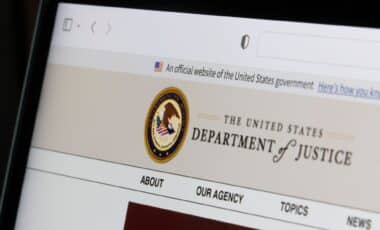Drivers across the United States can no longer rely on pandemic-era waivers to excuse expired licenses, as reported by El Adelantado in a recent article that detailed the nationwide return to strict enforcement. The Department of Motor Vehicles (DMV) in every state has confirmed that grace periods have ended, meaning that expiration dates are once again legally binding. This shift comes as federal Real ID requirements took effect at airports on May 7, 2025, and as DMVs work to clear the last remnants of the COVID-19 renewal backlog.
Pandemic-Era License Extensions Are Gone
During the COVID-19 pandemic, 34 states temporarily allowed drivers to operate vehicles with expired licenses, with extensions ranging from 60 days to a full year. Texas offered one of the broadest waivers, covering all licenses that expired after March 13, 2020. That waiver officially ended on April 14, 2021.
With the federal public health emergency declared over in 2023 and DMV offices fully reopened, all states have now returned to normal procedures. The consequences of driving with an expired license can vary by location: fines start at $50 in Maine, rise to $300 in California, and can reach $500 plus up to one year in jail in Georgia.
Insurance coverage may also be affected. In many cases, if the driver was operating with an expired license at the time of an accident, insurers are allowed to deny claims. These risks make it clear: if your license is expired, you’re not legally allowed to drive.
States Tackle DMV Backlogs
The American Association of Motor Vehicle Administrators estimates that about 14 million licenses expire each year. In 2021, as a result of pandemic-related closures, there were approximately 22 million delayed renewals across the country. Since then, DMVs have taken various measures to eliminate the backlog.
In California, the DMV has shifted heavily toward digital services. “We’re processing 20 percent more renewals online than before the pandemic,” said DMV spokeswoman Anita Gore, noting that eight out of 10 drivers in the state now qualify for online renewal.
North Carolina has focused on expanding physical capacity. The state’s DMV extended weekday hours to 7 a.m. to 5 p.m. and opened 20 branches on Saturdays to accommodate demand. Despite these changes, spokesman Marty Homan admitted that “appointment slots still fill within minutes,” a sign of how tight scheduling remains.
One State Pushes for an Exception
While nearly every state has ended license renewal extensions, North Carolina is considering a limited exception. House Bill 821 proposes to keep regular (Class C) licenses valid for two additional years past their printed expiration date—but only within state borders, and only until December 31, 2027.
The bill passed the House Rules Committee on May 13 but still needs approval from the full legislature and the governor. Even so, no other state has proposed a similar measure. And the bill’s own sponsor, Rep. Jay Adams, has acknowledged that it’s “a patch, not a fix.” Most states appear more interested in expanding online and automated services than offering across-the-board extensions.
What Every Driver Needs to Know Now
With grace periods gone, renewing on time is more important than ever. Here’s what drivers should do:
- Check your expiration date. Most licenses expire on your birthday.
- Use online services. 42 states allow eligible drivers to renew online. Many also let you skip the photo for one renewal cycle.
- Get Real ID ready. To fly domestically, you’ll need a Real ID card. That means gathering documents like a Social Security card, two proofs of address, and either a birth certificate or passport.
- Book appointments early. In big cities, DMVs still fill up fast. Rural branches may have more availability.
- Ask about exceptions. Military members, seniors, and out-of-state residents can often get temporary permits by mail—but only if they plan ahead.
DMVs are investing heavily in automation, online portals, and digital licenses. This new infrastructure is replacing the need for blanket waivers. In this environment, keeping your license up to date is your responsibility.
These States No Longer Allow Any Delay
As of mid-2025, all 50 states and the District of Columbia have ended pandemic-era grace periods for expired driver’s licenses. That includes:
Alabama, Alaska, Arizona, Arkansas, California, Colorado, Connecticut, Delaware, Florida, Georgia, Hawaii, Idaho, Illinois, Indiana, Iowa, Kansas, Kentucky, Louisiana, Maine, Maryland, Massachusetts, Michigan, Minnesota, Mississippi, Missouri, Montana, Nebraska, Nevada, New Hampshire, New Jersey, New Mexico, New York, North Carolina, North Dakota, Ohio, Oklahoma, Oregon, Pennsylvania, Rhode Island, South Carolina, South Dakota, Tennessee, Texas, Utah, Vermont, Virginia, Washington, West Virginia, Wisconsin, and Wyoming.









